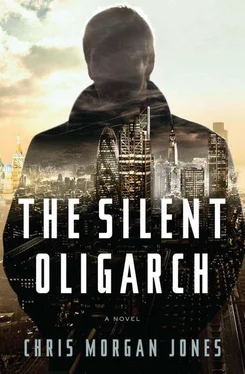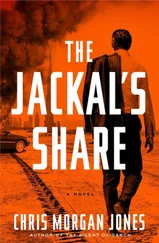The Irish company was Faringdon, which in recent months had been busy buying assets across what the article called “Russia’s near-abroad”: a Romanian refinery on the Black Sea, a petrochemical plant in Belarus and a gas storage facility in Azerbaijan. Inessa had found Faringdon as anonymous then as he found it now—more so, perhaps, because back then it had done less. She gave its address, its date of incorporation, its directors (Lock was dismissed in a sentence as a “lawyer of little reputation”) but went no further, content, perhaps, to leave it mysterious.
The second half of the article was fascinating, not for what it said (Knight had intimated as much, and more) but for what it left out. Faringdon, she wrote, was a vehicle directed by factions within the Ministry of Industry and Energy to channel Russian influence over its neighbors’ energy industries. Where companies had once been used for espionage, to provide cover or logistics, the newly open arms of capitalism now allowed the Russians to own what they had once only thought to observe. The plan had taken on fresh urgency when the financial crisis of 1998 left assets cheap and Russia looking weak and foolish in the eyes of the world. The article finished with some well-reasoned speculation about what Faringdon would turn its attention to next.
Malin wasn’t mentioned. It seemed odd that Inessa should have learned so much from such a good source and not know the name of the person within the ministry pulling the strings. But then the whole article rang false. Unusually for Inessa’s work it made no mention of its sources, not even to say that they couldn’t be revealed, and the story read as if it had been brought to her already half-formed by someone who had an interest in seeing it in print. But if that was the case, why publish it in an obscure London trade magazine with a tiny and specialist audience? Why fail to name Malin? Why write it without any form of substantiation? Why, for heaven’s sake, give it to Inessa, of all people?
That was the strangest thing of all. It didn’t read like Inessa’s work. It was unbalanced; it failed to convince; it wasn’t good enough. It was no wonder that no one else had thought to take up the story.
Webster spent another half hour checking earlier and later editions for any further mention of Inessa’s name, found none, and left less wise and more preoccupied than after his conversation with Alan Knight.
Almost ten years earlier, in the days after Inessa’s funeral, he had made a list of the stories that might have killed her. Eventually he had trimmed it, according to wherewithal and motive, from a dozen to three: a story about a corrupt Duma member and the head of organized crime in Sverdlovsk, the killing of a chemicals executive in Moscow, and the series about the owners of the Kazakh aluminum factory. But the same problem undermined each. It made no sense for a Russian to kill a journalist on foreign soil, even just across the border in Kazakhstan, because to do so was to complicate what had become almost routine. In Russia journalists seemed to die in two places—in Chechnya, where law did not exist and violence came to everyone; and in their homes, mugged on the landings of their apartments, robbed, dashed to their deaths by their own hand—and convictions followed either too quickly or not at all. During his time in Russia three or four journalists a year had died this way, and for every murder that was filed neatly away as an opportunist crime by vagrants or drunken neo-Nazis there were half a dozen that would simply never be solved. Whoever had felt threatened by Inessa would have been wise to finish her at home, because that’s where she was least safe and they most protected.
But this story was different. There was enough at stake here, and enough that was already strange, for its ending to be an anomaly. Webster imagined Malin at the beginning of his great project, the patient loyalist, national glory and untold profit ahead of him, threatened by a young woman who knew so much more than she should. For him it might make sense. Webster could feel unseen components of the puzzle rearranging themselves in his subconscious, moving into place, tempting him to believe that this, at last, was the knowledge he had been missing for ten years.
TO HAVE A THEORY, though, was not unusual. He had had theories before and nothing had come of them. The important thing with a theory was to let it settle, resist its charms, interrogate it quietly and see if it held up.
But before being disciplined about it he called Steve Elder at his new job and found him happy to talk. Elder had indeed been in Moscow: stringer for The New York Times from 1993 to 1994; they had met once, at a British embassy reception. He could remember the article, and Inessa, even though they had never met. She had sent him the piece, half-finished, as the first installment of a series about the new politics of Russia’s reviving energy industry. She wasn’t an energy specialist but he knew her work and liked this story; oil prices were beginning to rise after the crisis the year before and everyone was looking to see what Russia would do in its energy policy—and besides, it was “juicy.” He had paid the usual rate for the first article only, but had promised to look at the others when she knew exactly what they were going to be about; at the time she hadn’t been wholly clear.
It was late summer when he published. When he read of her death, perhaps two months later, he had written a note to Novaya Gazeta. His wife had commented that it was strange, almost, that she was the first Russian journalist he knew to die, there were so many.
No, he hadn’t thought it odd that she should send him the article. Even then, in the early days of the magazine, he had had all manner of people sending him ideas and stories. Had anyone suggested a connection between the article and her death? No, they had not. Elder had always assumed that it was one of the many minor oligarchs she had done so much to annoy. And no, it hadn’t occurred to him that it was inadequately sourced. In fact he remembered it quite differently.
The conversation had ended there, more or less, with Elder a little prickly and Webster satisfied that this was all he was going to learn.
The theory would just have to settle. In the meantime he had his case, and there Alan Knight and Inessa had left him with the sense that he knew at once much more and no more than he had before; as if he’d asked for directions and been given only a full history of his destination. The one thing that he could act on was what Knight had said about Dmitry Gerstman. Every investigator loved a disgruntled ex-employee, and Gerstman was mysterious to boot. People didn’t simply leave organizations like Malin’s without fuss. They stayed, or they were thrown out, or there was a fight.
The only thing that gave Webster pause was that he knew nothing about the man. There was a little in the report that Tourna had given him but, he discovered, it had all been taken from the Web site of Gerstman’s new company. Also there, at least, was a photograph of him, a good one, as these things go, in black and white. In it he looked neat, disciplined, a little severe; but not, thought Webster, haunted. Probably in his mid-thirties. One of the young Russian technocrats, raised on margins and business models rather than rigorous central planning. His new company, Finist Advisory Services PartG, offered strategy consulting to energy and petrochemical companies. It wasn’t really clear what that meant, but whatever it was it seemed to be focused on central Europe. Gerstman had a partner called Prock, and elegant offices just off Kurfürstendamm in west Berlin.
Webster’s preference was to steer a friendly journalist toward him to tease out some clue that might magically unlock his motivation. Gerstman was so precious—their only real source—that they might have only one chance to win him over. Hammer had thought this a waste of time and an insult to Gerstman. “He deserves you, not some stringer. What are we going to find out? We know he doesn’t like Malin. We know he’s not going to tell you anything straightaway. But he might over time, and he might talk to Lock. And it’s something to tell Tourna. You need a relationship with him. Better to start one now.”
Читать дальше












